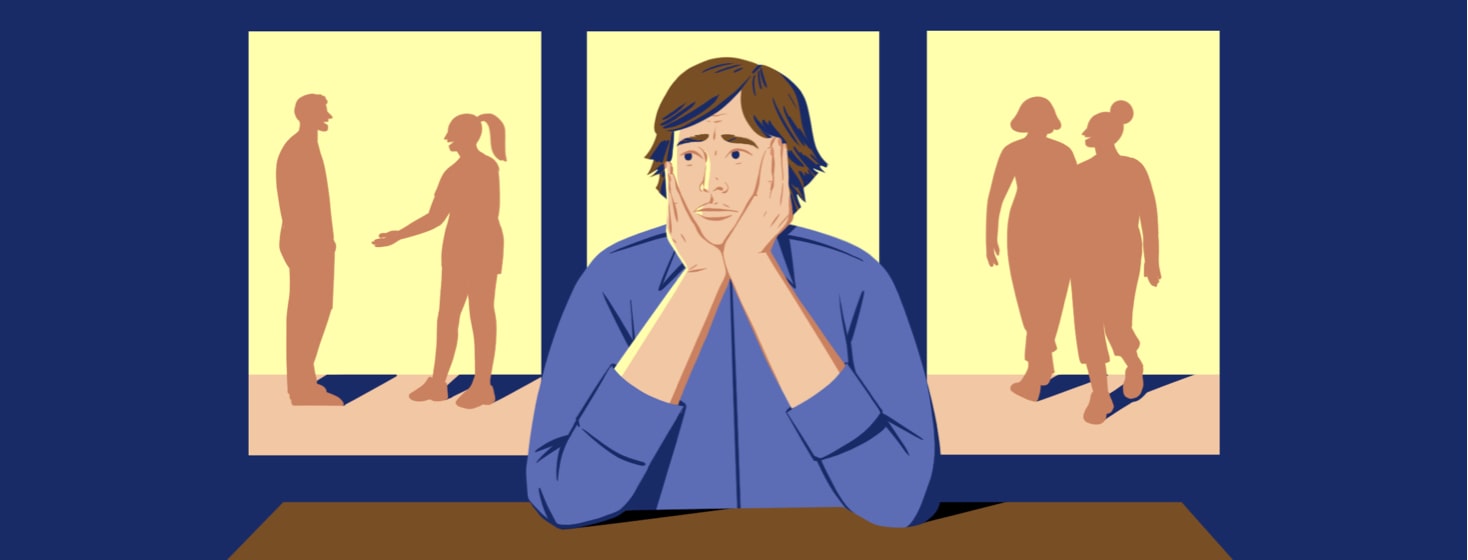Do You Talk About Your Depression?
Recently, I was thinking about the question: How much do you say about your depression? If you are like me, the answer is "not much" or maybe "it depends."
Not wanting to talk about my depression
Yes, there were times when I confided in a grief counselor and now and then. And I will let a couple of people in my life know that things are not going well or appear to be heading in the wrong direction.
But nobody likes a Debbie Downer, right? It is a mixed bag on how much I am willing to share my largest, deepest thoughts with others. Sometimes, like right now, I think about reaching out to a few people I'm close to, to let them in, so to speak.
But then I decided to stay quiet. After all, they have their own lives and problems. They don't want to hear from me unless I'm cheerful and my sarcastic sense of humor is on display to entertain them. Right?
Using humor to avoid opening up
I was always that one in my friend group they turned to in order to make them laugh. Years ago, this sentiment presented itself to me when my friend was going through breast cancer and called me to go with her to buy a wig anticipating losing all her hair. "You have to come with me and make me laugh," she said.
And so I did. I cannot remember exactly how, though. At the time, I was newly diagnosed, in the throes of grief, and had just recovered from another major surgery. But I made witty remarks and mumbled comments that made her roar with laughter during shopping trip.
Looking back, I think one of my superpowers is acting or covering up what is going on inside my head. Two years ago, however, I remember a night that made a big difference.
A really bad night
I was recovering from a hospital stay at home and a series of mishaps kept happening that had me on edge and in one instance, a visiting nurse was called at night to fix a malfunctioning piece of equipment.
The headquarters of this agency was none too pleased to be called at 8 p.m. or whatever, (even though they are available 24/7), but she sent someone over. When I opened the door, I greeted the nurse with a rush of words, trying to explain what had gone wrong and then suddenly just "losing it," to an extent I had not for a very long time.
This or That
When something is bothering you, what do you tend to do?
Depressed and overwhelmed
It was scary. I was crying with frustration trying to explain and having someone initially looking at me with a puzzled look on her face. It was my first time experiencing what I now call "scream crying."
I kept telling this nurse, "I'm not crazy!" Eventually, she fixed what she had to and was talking to me, trying to distract me from my hysteria.
For example, she asked me what I did for a living. Still sniffling and crying I replied, "I'm an editor."
"Oh? What is the publication about?"
"Mental health." At this point I saw the irony. Here I was screaming and acting out of sorts while then saying I worked at a psychology magazine. I found it funny. Before she left, she told me I was obviously sleep-deprived (which I was) and overwhelmed by all that had happened and had to just focus on recovery, nothing else.
Depression: talking it out, letting it out
The week after, I confided in a half dozen people that I had scared myself, that my depression was spiraling and I was not in control of my health, mental or physical. I believe I apologized for talking about it, but felt it was important these people knew how the state of things degenerated – for real.
And every person told me they wanted to know and there was no need to feel sorry about telling them. They said they cared and wanted to help and that it did not have to get so extreme for me to reach out. Good to know.
